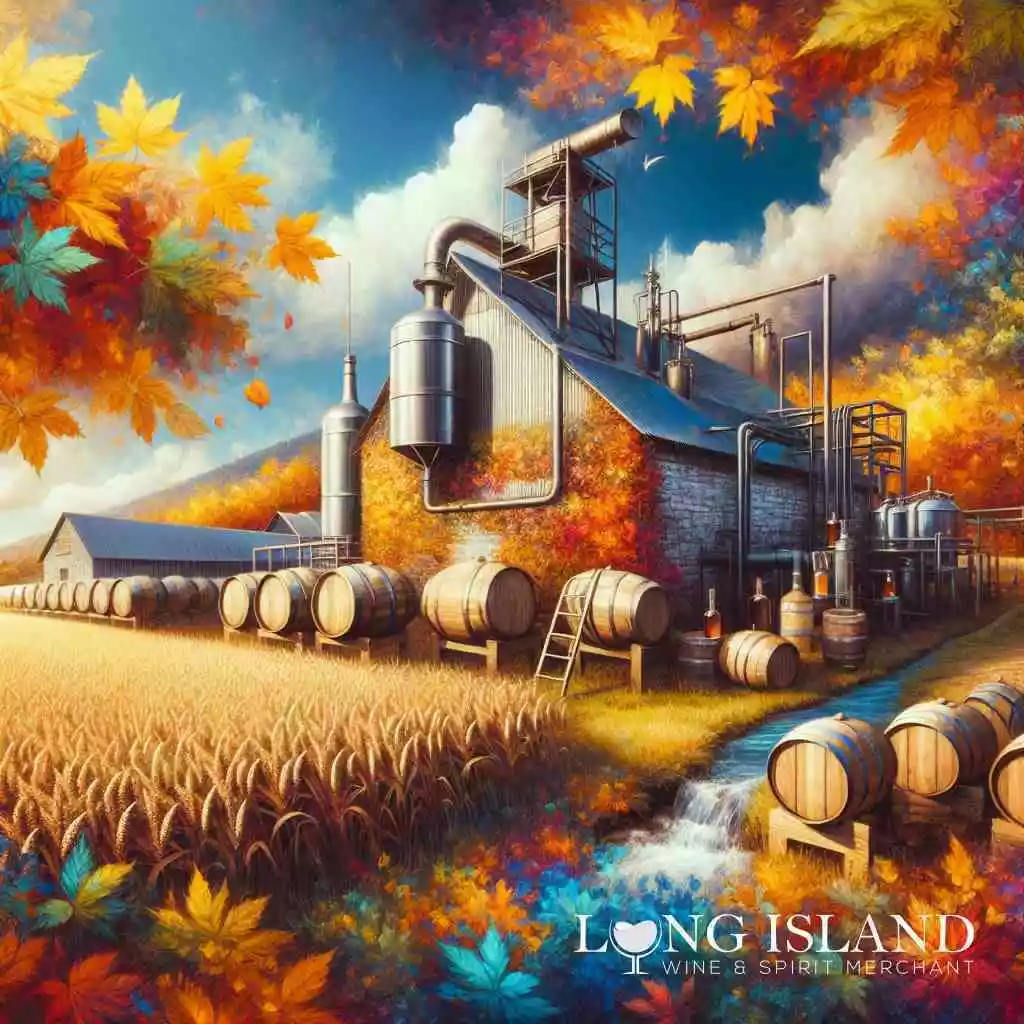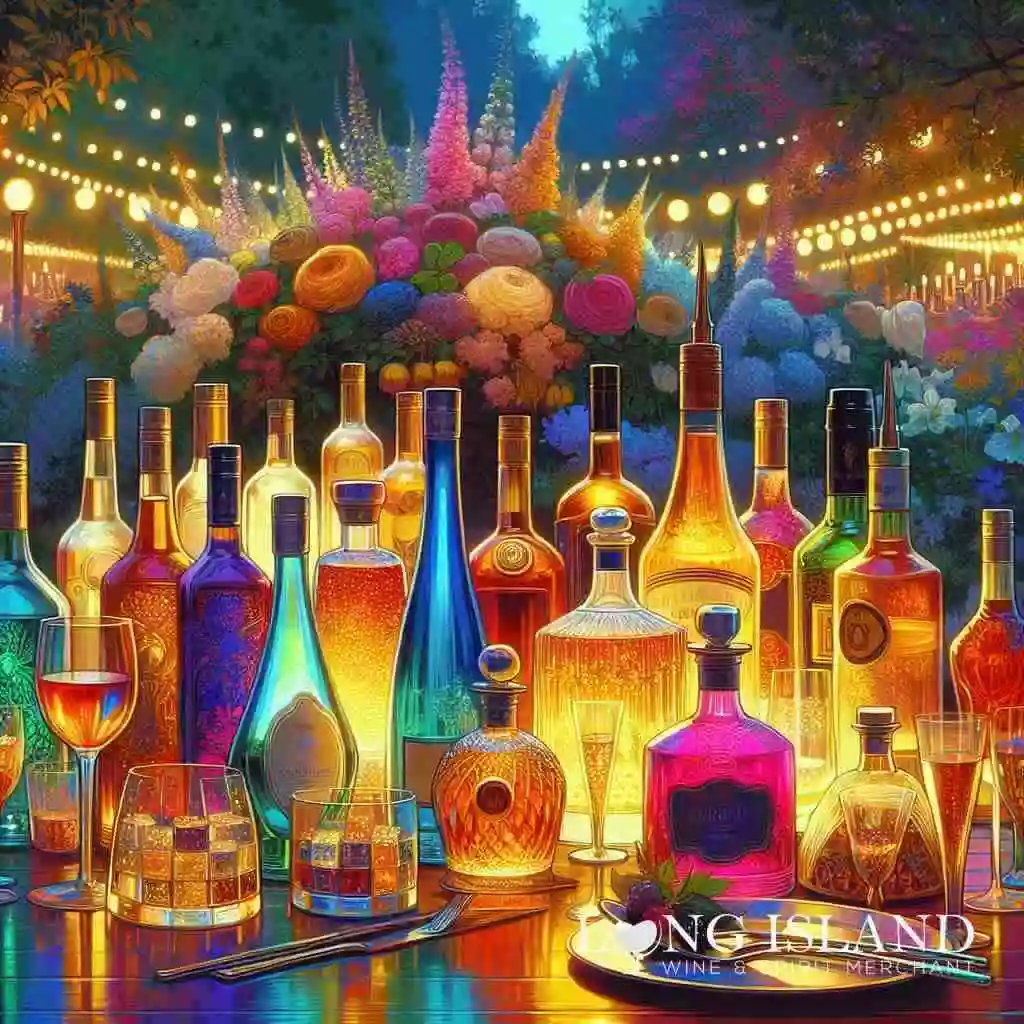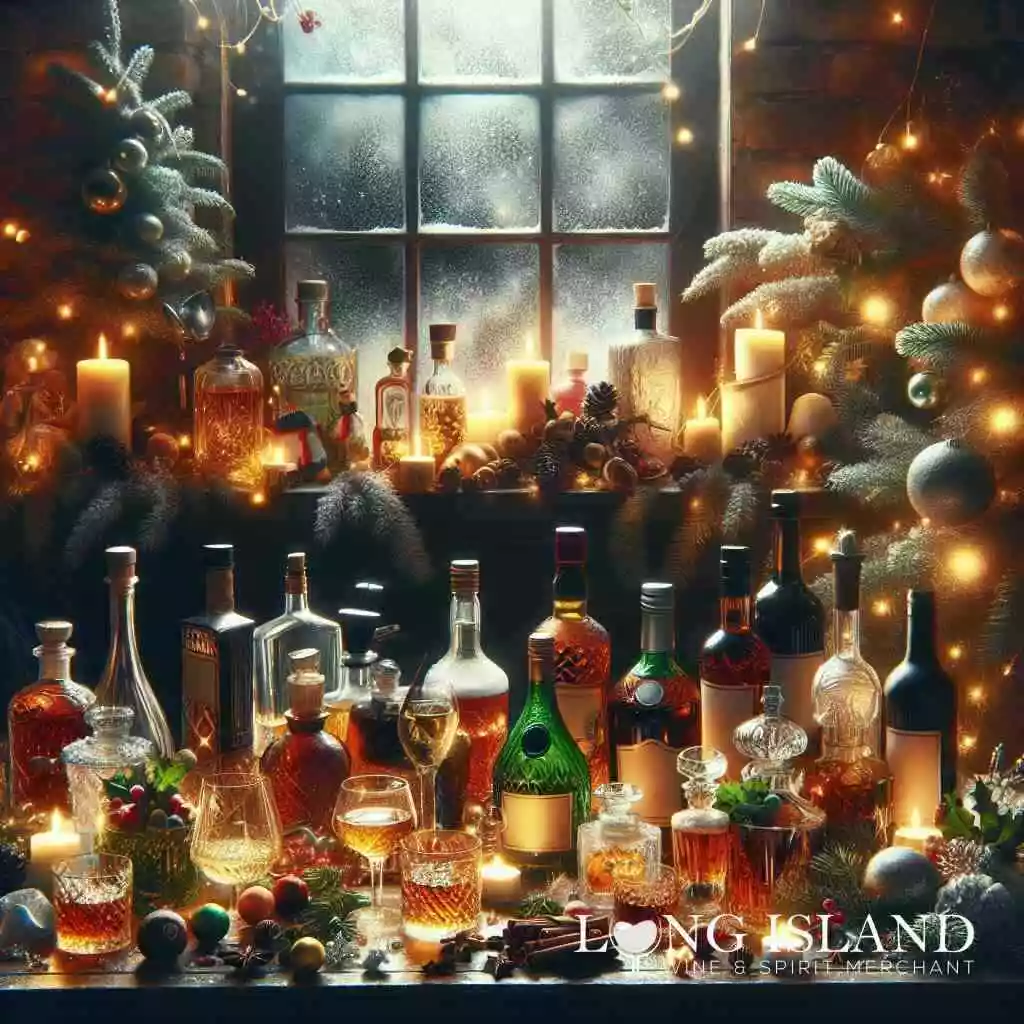
What Makes a Spirit ‘Craft’ in 2024?
September 27, 2024
Introduction to Craft Spirits
Defining Craft Spirits in 2024
Craft spirits in 2024 represent a fascinating evolution of artisanal tradition mixed with modern innovation. These spirits are predominantly produced by independent distilleries that prioritize quality, creativity, and community connection above mass production. With a more meticulous approach to sourcing ingredients, processing, and bottling, craft spirits are distinguished by their unique profiles and limited editions. A significant part of their definition also rests on their authenticity and the artisanal spirit in their production, a remarkable response to the growing consumer interest in products that tell an authentic and engaging story of their origin, production, and the people behind them. Learn more about what defines explicitly a craft spirit this year.
The Evolution of the Craft Distilling Industry
Over the past decades, the craft distilling industry has seen exponential growth from nurturing small-scale hobbyist operations into fully-fledged businesses that significantly impact the liquor market. This maturation process has been fueled by rising consumer demand for bespoke goods that offer something special – a taste, a story, a connection to a particular locale. Pioneers of this industry have now set industry standards that continue to inspire a new generation of distillers, thus enriching the product offerings massively. In places like Commack, New York, and throughout Long Island, small craft distilleries increasingly dot the landscape, each bringing their personalized touch to their concoctions, making the area a hotspot for craft spirit enthusiasts.
Why the Surge in Popularity of Craft Spirits?
The surge in the popularity of craft spirits is attributed to several factors. Top on this list is the consumer’s growing preference for local and organic products, which extends beyond food to include beverages like spirits. Moreover, there’s an increasing appreciation for the craftsmanship and storytelling essence encapsulated in craft spirits. People are not just buying gin, whisky, or rum; they’re investing in a sensory experience and a story that resonates with their personal or aspirational lifestyle narratives. Additionally, the rise of social media and digital marketing has made it easier for smaller distilleries to amplify their stories and connect with a global audience, further boosting their popularity. With every batch released, distillers guarantee a unique tasting experience, often infused with local botanicals and innovative methods, turning every sip into a compelling narrative about its origin and craftsmanship.
Critical Characteristics of Craft Spirits
Small Batch Production Processes
Small batch production remains a keystone in defining what makes a spirit ‘craft’ in 2024. This method involves producing spirits in limited quantities per batch, allowing for meticulous control over every aspect of their production. Small batches mean that master distillers at artisan distilleries like those on Long Island are significantly involved in every stage of the distillation process, from selecting the raw materials to overseeing the fermentation and aging processes. This hands-on approach ensures that each bottle maintains a high standard of quality and complexity. As detailed in our exploration of minor batch liquor in NY, these spirits reflect the unique characteristics of their environment, influenced by local weather patterns and seasonal variances, which are celebrated rather than curbed.
Artisanal Techniques in Distillation
Artisanal techniques in distillation are essential in crafting unique and high-quality spirits. These methods combine traditional practices that have been passed down through generations with innovative approaches that underscore the distiller’s skills and creativity. For instance, manual temperature checks, hand-sealed bottles, and old-fashioned pot stills are standard in these craft processes. Additionally, by adhering to these artisanal methods, distilleries ensure that every batch of craft spirits retains a distinct sensory profile that cannot be replicated by mass-produced products, emphasizing the value of artisanal spirits. This dedication not only preserves the heritage and history of distilling but also pushes the boundaries of what spirits can be.
Use of Local and Organic Ingredients
The commitment to using local and organic ingredients is more than a trend in the craft spirits industry; it’s a pivotal part of the ethos that defines a craft spirit. Distilleries often forge partnerships with local farmers and botanical growers to source the best organic ingredients, ensuring that everything going into the spirits adds to their authentic, local flavor. Ingredients like locally-grown juniper for gin or region-specific herbs for botanical vodkas contribute to a palette of tastes that underscore the local character and terroir. This practice not only supports local agriculture but also reduces the carbon footprint associated with large-scale commercial distilling, aligning with the values of sustainability-conscious consumers. As explored in discussions on sustainable distilling practices, this focus helps promote biodiversity and sustainability, which are crucial for the long-term viability of the craft spirits industry.
The Production Process
Grain to Glass Philosophy
The concept of “Grain to Glass” is central to the ethos of craft spirit production, particularly at artisan distilleries on Long Island. This philosophy ensures that every step of the spirit-making process is controlled in-house, from the sourcing of raw, local ingredients to the distillation, maturation, and bottling. This meticulous approach not only guarantees a high level of quality and authenticity but also allows distillers to impart a distinct character to each spirit, reflective of its origin (artisan distilleries on Long Island). By maintaining an intimate connection with every stage of production, Long Island distilleries are able to create spirits that are not only superior in taste but also in narrative.
Sustainable Distilling Practices
Sustainability is a cornerstone of the craft distilling movement, influencing everything from energy consumption to waste management. On Long Island, craft distilleries incorporate green technologies and methods to reduce their environmental impact, such as using organic ingredients, recycling by-products, and employing energy-efficient distillation techniques. Fresh, local produce ensures fewer transport emissions, and botanicals are often grown in pesticide-free environments. More so, there’s a strong emphasis on minimal and recyclable packaging to lessen waste. These sustainable distilling practices are not just good for the planet but also appeal to environmentally conscious consumers who value ethical production methods.
Innovation in Craft Spirit Production
Innovation drives the craft spirits industry, with distillers constantly experimenting with new flavors, distillation techniques, and aging processes to create unique products. From using non-traditional woods for barrels to exploring ancient recipes with a modern twist, every element of production is ripe for innovation. At Long Island Wine & Spirit Merchant, unique distillation methods are not just preserving traditional crafts; they are setting the stage for a new era of liquor production (craft liquor innovations). This innovative spirit not only helps in crafting exclusive, never-before-tasted liquors but also in attracting a clientele eager for new and experiential drinking sensations.
Distinctive Features of Craft Distilleries
Independently Owned and Operated
Craft distilleries mark themselves apart by maintaining independence from more giant beverage conglomerates. This autonomy allows them the flexibility to experiment with ancient or unconventional techniques and ingredients that larger companies might eschew due to scalability concerns. At a local level, such as in Commack, New York, these independent distilleries contribute to a sense of community and regional pride, offering a personal touch that’s often absent in mass-produced spirits. This inherent independence is crucial as it fosters innovation and maintains the authentic craft ethos that appeals to connoisseurs and casual drinkers alike. Being independently owned means they can focus on quality over quantity, and craft spirit lovers get to enjoy unique flavors that are only available in limited areas like Long Island.
Custom and Limited Edition Offerings
One of the most compelling aspects of craft distilleries is their ability to produce custom and limited-edition offerings. These exclusive releases are highly anticipated by enthusiasts and collectors, adding to the allure of craft spirit exclusivity. Limited editions often feature local ingredients, innovative aging processes, or forgotten recipes, providing a distinct tasting experience that can’t be replicated. For instance, bespoke spirits tailored for special occasions or personalized to individual tastes highlight the level of craftsmanship and personal service that defines the industry. Long Island Wine & Spirit Merchant often collaborates with local artists and designers to create unique packaging and labeling that enhances exclusivity and appeal.
Breadth of Spirit Varieties at Long Island Wine & Spirit Merchant
At Long Island Wine & Spirit Merchant, also known as Liquor Bottle Sizes, the variety of craft spirits is expansive, catering to a robust spectrum of palates and preferences. From smooth, oak-aged whiskies to aromatic botanical gins, the selection underscores the innovative and diverse offerings typical of craft distilleries. The store’s commitment to showcasing a wide array of Long Island liquor includes sourcing from local distilleries that prioritize sustainable and organic practices, ensuring that customers not only enjoy high-quality spirits but also support environmentally responsible businesses. By featuring a broad range of spirits, Long Island Wine & Spirit Merchant not only supports local distilleries but also educates consumers about the rich tapestry of flavors and traditions that craft spirits represent.
Impact of Craft Spirits on Consumer Choices
Personalized and Tailored Spirits
Craft spirits epitomize a highly personalized drinking experience, each batch offering distinct flavors and narratives that connect with the individual consumer. At places like Long Island Wine & Spirit Merchant, the emphasis on exclusivity and personal customization, with options such as bespoke spirits, allows customers to engage with their liquor on a deeper level. Personalized spirits cater not only to personal tastes but also to unique preferences for botanical mixes, aging processes, and even packaging. This tailored approach not only enriches the consumer experience but also enhances the overall value, turning a simple bottle of liquor into a personalized artifact.
Craft Spirits in Cocktail Recipes
Innovation in cocktail culture is a thrilling frontier for craft spirits. The unique characteristics of small-batch distillates provide mixologists with a canvas for cocktail innovations with craft spirits. These spirits bring distinctive flavors and aromas that are not typically found in mass-produced brands, allowing for the creation of signature drinks that stand out in the increasingly competitive bar scene. On Long Island, bars and restaurants proudly showcase menus featuring cocktails made with local micro-distillery products, drawing in a clientele eager to explore new and exciting flavors. This aspect not only promotes craft spirits but also elevates the cocktail experience, making it more personal and engaging.
Influence on Local Economies
The craft spirits industry has a profound impact on local economies, driving growth and supporting small businesses. Independent distilleries often source their ingredients locally, thereby bolstering regional agriculture and contributing to the sustainability of local farms. Moreover, as seen in regions like Long Island, these distilleries become integral parts of their communities, boosting tourism and creating jobs. The presence of local distilleries in Long Island not only enriches the local culture and economy but also fosters a sense of community pride. The economic ripple effects of this industry are significant, as every bottle sold supports numerous other local enterprises, from agriculture to retail, and reinforces the economic fabric of the area.
Looking Ahead: The Future of Craft Spirits
Trends Anticipated in 2024 and Beyond
As we advance further into 2024, several emerging trends continue to shape the craft spirits industry, hinting at a dynamic future. One such trend is the growing preference for hyper-localized spirits that champion local flavors and heritage. Consumers increasingly favor products that not only taste good but also tell a story of their origin, nurturing a deep connection with the region’s culture and traditions. Additionally, the integration of technology in production processes like blockchain for transparency and AI-driven flavor profiling is set to redefine the depths of quality and innovation in craft spirits. This technological embracement aids in crafting complex flavor profiles that cater to refined palates seeking new, immersive experiences.
Another significant trend is the rise of sustainable and eco-conscious production methods. More distilleries are turning to organic practices and renewable energy sources to minimize environmental impact, a movement propelled by consumer demand for sustainable consumption. These practices are not just environmentally beneficial but also tend to produce higher-quality spirits, which are immensely popular among ecologically conscious drinkers.
Challenges Facing Craft Distilleries
While growing in popularity and influence, craft distilleries face a set of unique challenges that could impede their progress. One of the foremost issues is the intense competition not just from other craft producers but also from large, established liquor companies venturing into the craft market. These giants often possess the capital to mimic craft-like spirits at a larger scale, putting authentic craft distilleries under significant pressure.
Regulation and compliance also pose significant hurdles. The craft spirits sector often deals with complicated and varying regulations across different regions, which can stifle growth, particularly for smaller operations hoping to expand into new markets. Additionally, maintaining a consistent supply of high-quality, local ingredients can be challenging, especially amidst climate change and fluctuating market conditions, which can affect crop yields and availability.
Opportunities for Growth and Innovation
Despite these challenges, the opportunities for growth and innovation within the craft spirits industry are abundant. The expanding global palate for unique, high-quality spirits opens up new international markets for craft distilleries that are ready to scale thoughtfully while maintaining their craft ethos. Partnerships with local farmers and ingredient suppliers can further strengthen the supply chain and ensure a steady input of premium ingredients, fostering both sustainability and community ties.
Innovation in product offerings, such as creating spirits infused with unusual or forgotten herbs, offers significant opportunities to captivate the market. These innovations can be amplified by leveraging digital marketing for craft distilleries, which can effectively communicate the unique value propositions of craft spirits to a broader audience. Custom offerings, like the custom spirit gift boxes in Long Island, also provide a personal touch that can significantly enhance customer experience and loyalty.
Furthermore, experiential marketing through initiatives like craft distilling tours on Long Island can immerse consumers in the craft spirit production process, creating memorable experiences that reinforce brand loyalty and appreciation for the craft. These tours not only serve as an educational tool but also as a direct engagement strategy that bridges the gap between producers and consumers.
Adapting to these trends, overcoming challenges, and seizing available opportunities are crucial for craft distilleries aiming to thrive in 2024 and beyond. As they navigate this evolving landscape, the commitment to authenticity, quality, and innovation will continue to be paramount in defining the success of the craft spirit movement.
Conclusion: Embracing the Craft Spirit Movement
Summary of Craft Spirits’ Benefits and Appeal
Craft spirits are not just alcoholic beverages; they are a testament to the meticulous care, heritage, passion, and creativity that go into each bottle. In 2024, embracing craft spirits at places like Shop Liquor Bottle Sizes isn’t just about enjoying a superior drink; it’s about participating in a culture that values quality, local craftsmanship, and sustainability. These spirits offer a tangible connection to the land and the people who nurture it, fostering a deeper appreciation for the small-batch, artisanal processes that distinguish them from mainstream liquors.
By prioritizing local ingredients, sustainable practices, and innovative distillation techniques, craft spirits deliver a unique imbibing experience that is both luxurious and deeply personal. The care with which these spirits are made often results in a cleaner, more refined taste-an embodiment of the community and natural environment from which they spring. This quality makes them not only a choice for consumption but a story worth sharing at gatherings, making the sipping of craft spirits a genuinely social affair.
How to Get Involved and Support Local Craft Distilleries
Supporting local craft distilleries is crucial for sustaining the rich tapestry of unique spirits they offer. Enthusiasts can engage by purchasing directly from local stores like Long Island Wine & Spirit Merchant or participating in events that celebrate artisan distilleries. One effective way to contribute is by joining support for local craft distilleries, where you can learn more about the challenges these distilleries face and how your support helps them thrive.
Additionally, attending craft spirit tours near Long Island provides an intimate look at the distilling process, from grain to glass. These tours not only educate visitors about the complex process of craft distilling but also showcase the passion and dedication of the distillers. Purchasing craft spirits as gifts or choosing craft options in bars and restaurants also goes a long way in supporting these local businesses.
Exploring Craft Spirits at Long Island Wine & Spirit Merchant
At Long Island Wine & Spirit Merchant, exploring the diverse world of craft spirits is a voyage into the heart of Long Island’s rich distilling culture. This establishment offers an extensive array of craft spirits from local and international distilleries, providing something unique for every palate. Whether you’re a connoisseur or new to the world of craft spirits, the knowledgeable staff at this premier location will guide you through their carefully curated selection, ensuring you find the perfect spirit for any occasion.
Their services do not stop at sales; the store regularly hosts tasting events and mixology workshops that help deepen your understanding and appreciation of craft spirits. Such events offer hands-on experiences with various liquors and provide valuable insights into pairing and cocktail creation, enriching your overall drinking experience.
In conclusion, the craft spirit movement in 2024 is more than just a trend’s a sustainable, innovative, and community-oriented approach to enjoying spirits. By exploring options at establishments like Long Island Wine & Spirit Merchant and participating in community support for distilleries, you not only enjoy high-quality spirits but also contribute to a flourishing industry that values tradition and innovation in equal measure. Whether through purchasing, learning or simply savoring these exceptional beverages, embracing the craft spirit movement is a journey well worth taking.
Frequently Asked Questions
Question: What defines a spirit as ‘craft’ in the 2024 market, specifically through Shop Liquor Bottle Sizes?
Answer: In 2024, a spirit is considered a ‘craft’ if it reflects a marriage of traditional distillation methods and innovative approaches aimed at creating unique and quality flavors. At Shop Liquor Bottle Sizes, craft spirits are characterized by small batch production, the use of organic and local ingredients, and sustainable distilling practices. These attributes ensure each bottle of liquor not only boasts unique flavors but also supports local agriculture and minimizes environmental impact. Our selection of artisanal spirits showcases the best in regional and international craft distilleries, giving our customers a taste of exclusive, non-commercial spirits that embody the essence of their origins.
Question: Can you explain the significance of the ‘grain to glass’ philosophy at Shop Liquor Bottle Sizes?
Answer: The ‘grain to glass’ philosophy is central to our ethos at Shop Liquor Bottle Sizes, particularly in the craft spirits segment. This approach means controlling every aspect of production within the distillery, from sourcing locally grown ingredients to distillation and bottling. By managing the entire manufacturing cycle, our featured distilleries ensure premium quality and authenticity in every bottle, mirroring the dedicated craftsmanship that our customers value. This meticulous attention to detail is what sets Craft Spirits apart in the market and what ensures our customers enjoy a superior product aligned with bespoke and sustainable values.
Question: How does Shop Liquor Bottle Sizes incorporate sustainability into its craft spirit selection?
Answer: Sustainability is a cornerstone of our approach at Shop Liquor Bottle Sizes. We prioritize featuring craft spirits from distilleries that utilize sustainable distilling practices, including the use of renewable energy sources, organic ingredients, and efficient waste management systems. By doing so, we ensure that our spirit selection not only elevates your drinking experience but also aligns with eco-friendly practices. This commitment to sustainability resonates well with our customers, who are increasingly environmentally conscious and looking for products that are both high-quality and have a minimal environmental footprint.
Question: In the context of ‘What Makes a Spirit ‘Craft’ in 2024?’, how do Shop Liquor Bottle Sizes ensure a wide variety of craft spirits?
Answer: At Shop Liquor Bottle Sizes, diversity in our craft spirit offering is paramount. We collaborate closely with a range of micro-distilleries and independent distilleries to ensure our inventory includes a wide array of craft spirits, from minor batch liquor to limited edition liquor and bespoke spirits tailored for various palettes. Our close partnerships with local and international producers allow us to offer exclusive and innovative products that cater to the growing demand for non-commercial spirits. By maintaining this variety, we ensure that each customer finds a unique spirit that resonates with their taste and preference, contributing significantly to the enrichment of their craft spirit experience.
Question: What opportunities do tailor-made and limited edition offerings present to craft spirit enthusiasts at Shop Liquor Bottle Sizes?
Answer: Tailor-made and limited edition offerings at Shop Liquor Bottle Sizes provide craft spirit enthusiasts with unique opportunities to experience rare flavors and exclusive blends that are not available in conventional markets. These limited offerings allow fans to explore complex and novel sensory profiles crafted by innovative distillers. Additionally, customizing spirits for specific tastes or occasions adds a personal touch, making our offerings ideal for gifts or special celebrations. They not only enhance the overall consumer experience but also assure the exclusivity and premium quality that craft spirit lovers cherish.




